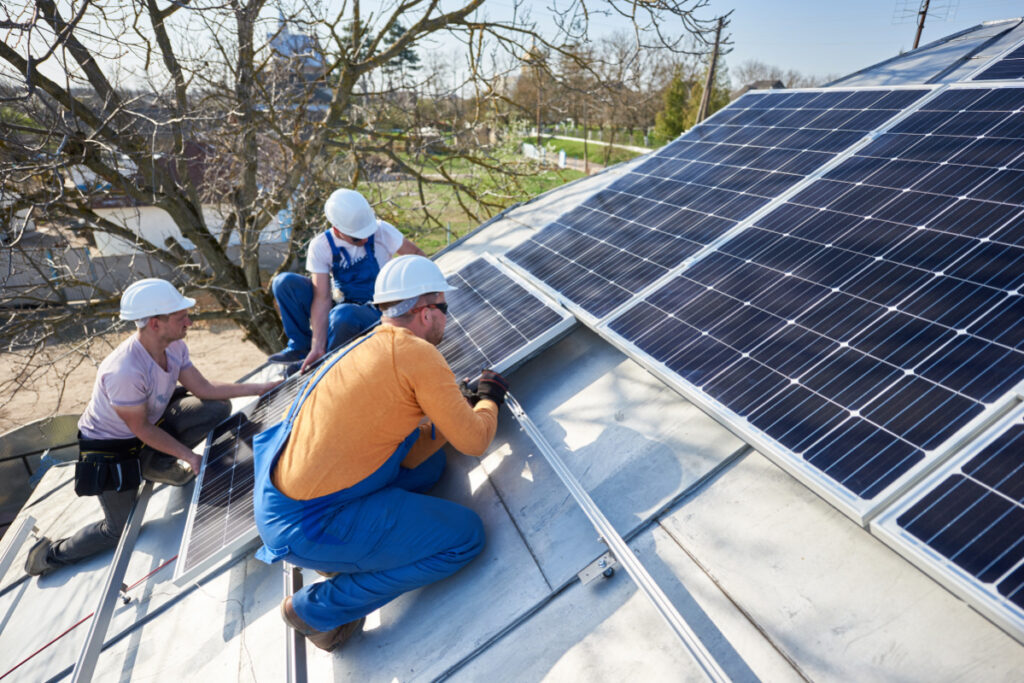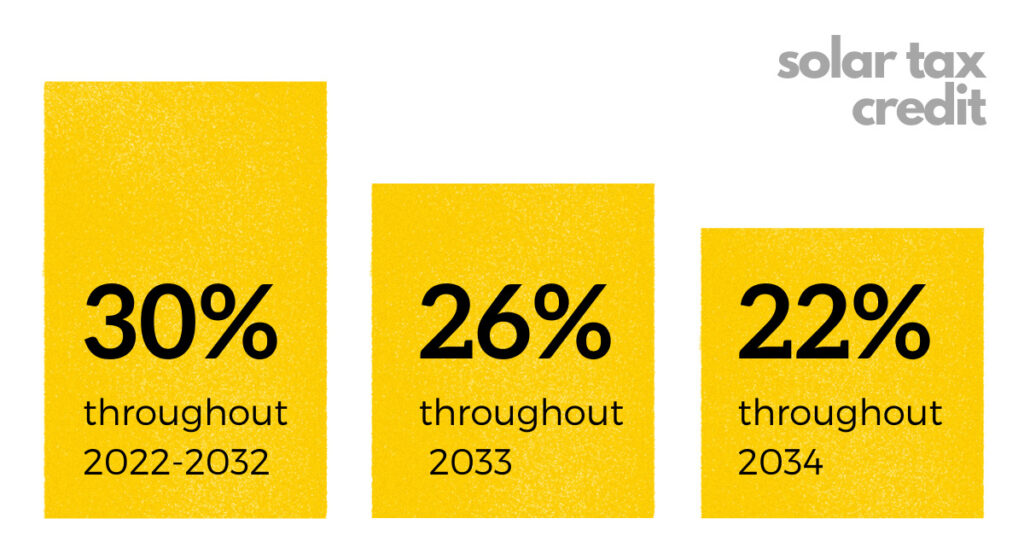Introduction
If you’re considering installing solar panels in Colorado and need a trustworthy partner to help you tap into solar power, your search ends here. Follow this step-by-step guide to install solar panels with Black Hills Energy, a prominent solar energy provider in Colorado.
Discover how going solar can lower your energy bills, benefit the environment, and provide dependable service. But that’s not all! We’ll also explore various incentives and financing options to make this investment even more affordable for Colorado residents.
| Key Takeaways |
|---|
| Installing solar panels with Black Hills Energy in Colorado can lower energy bills, reduce your carbon footprint, and benefit from reliable service. |
| Assessing your energy needs and evaluating solar potential are essential to determine if solar power suits your home. Financing options such as the federal tax credit and leasing or loans are available to make it more affordable. |
| The step-by-step guide for installing solar panels with Black Hills Energy includes consultation and site assessment, design and proposal approval, permitting and utility interconnection, installation and inspection, and activation and monitoring. |
| Colorado provides a range of incentives such as federal tax credits up to 30% and state renewable energy tax credits up to $1,000 off state income taxes. |
Why Install Solar Panels With Black Hills Energy In Colorado?
Install solar panels in Colorado with Black Hills Energy for lower energy bills and reduced carbon footprint. Benefit from their reliable and experienced service.
Lower Energy Bills
Homeowners in Colorado choose to install solar panels with Black Hills Energy. This is primarily due to the potential for substantial reductions in energy bills. Solar energy systems can offset a significant portion of a home’s electricity usage by harnessing the sun’s power. It can reduce reliance on conventional energy sources and decrease monthly utility expenses.
Investing in a solar power system offers long-term benefits: increased property value and protection against rising energy prices. Additionally, it saves money on monthly bills.
Installing solar panels may require an upfront investment. Still, many homeowners find that making the green choice pays off financially due to generous incentives and ongoing utility savings. State and federal governments offer tax credits, rebates, and other incentives.
Environmental Benefits
Installing solar panels with Black Hills Energy in Colorado provides numerous environmental benefits. Switching to solar power reduces homeowners’ carbon footprint by reducing reliance on traditional energy sources emitting greenhouse gases.
Solar panel installation also decreases the demand for fossil fuels like coal and oil. This reduces harmful emissions and pollution from power stations, leading to a cleaner environment and healthier community living conditions.
![]()
Reliable And Experienced Service
Black Hills Energy is a reliable, experienced solar power company that has served Colorado customers for many years.
With a focus on reducing energy bills and transitioning to renewable energy sources, they’ve built a reputation for top-quality service.
Their expert team comprises trained professionals to deliver high-quality installations meeting safety and performance standards.
Additionally, Black Hills Energy offers ongoing support to ensure your solar panels always perform optimally.
Is Solar Power Right For Your Home?
Assess your energy needs and evaluate your home’s solar potential to determine if solar power is the right choice for you. Additionally, consider financing options to make the process more affordable.
Assessing Energy Needs
Assessing your energy needs is critical to determine whether solar power suits your home. The assessment involves analyzing your current electricity usage. It also includes the amount of solar irradiation the system can generate. As well as the size of panels that will fit on your roof or ground mount.
You may use an online calculator. Or consult with DroneQuote to estimate how much energy you’ll need daily and monthly.
Solar panel performance is influenced by factors like shading, roof orientation, angle, and available surface area. During the assessment, Black Hills Energy engineers conducted a site survey and shade analysis using specialized tools like SunEye 210 shade.
After accurately assessing your energy needs, it becomes easier to choose a financing option that aligns with your budgetary constraints and sustainability goals.
Evaluating Solar Potential
Before installing solar panels, evaluating your home’s solar potential is important. This involves assessing how much sunlight your roof receives and whether any obstructions, like trees or tall buildings, could block the sun.
Another factor in evaluating solar potential is considering your home’s energy needs. A larger system may be necessary if you have high energy bills. But a smaller array may suffice if you have lower usage.
By doing this evaluation beforehand, you can ensure that the installation process goes smoothly and that you’re getting the most out of your investment in renewable energy.
Financing Options
Several financing options are available to homeowners installing solar panels with Black Hills Energy in Colorado. One option is the federal tax credit, which offers a 30% credit on solar system costs for residential properties.
Another option is the Colorado Residential Renewable Energy Tax Credit, which provides up to $4,000 for eligible installations.
For those who might not have the upfront capital required for a cash purchase of solar panels, leasing, and loans are also available. Leasing allows homeowners to rent the equipment and pay monthly fees instead of buying outright.
Loans provide upfront funding that can be paid back over time with interest.
Overall, investing in solar power systems can provide long-term cost savings and environmental benefits for homeowners in Colorado.

Step-by-Step Guide To Installing Solar Panels With Black Hills Energy
The step-by-step guide for installing solar panels with Black Hills Energy in Colorado includes a consultation and site assessment, design and proposal approval, permitting and utility interconnection, installation and inspection, and activation and monitoring.
Consultation And Site Assessment
A consultation and site assessment will be necessary before installing solar panels with Black Hills Energy. During this stage, an engineer or expert from Black Hills Energy will visit your home to assess its suitability for solar power.
They will consider factors such as the size and orientation of your roof, shading from trees or other buildings in the area, and your energy needs.
During this stage, you’ll also discuss any concerns or questions regarding installation and maintenance processes. The expert from Black Hills Energy will provide recommendations tailored to your needs while ensuring that every installation process aligns with local regulations and best practices.
Design And Proposal Approval
After the initial site assessment, installing solar panels with Black Hills Energy is the next step in designing a system that meets your energy needs. The design will consider roof pitch and orientation, shading from nearby structures or trees, and your household’s energy consumption.
It’s important to review the proposal carefully and ask any questions you may have before approving it. This is also an opportunity to discuss financing options if needed.
Black Hills Energy offers several financing options, such as leasing or purchasing with cash or loans, and there are also state tax credits and rebates available for residents who install solar panels.
Permitting And Utility Interconnection
Once you have designed your solar panel system and ordered the equipment, it’s time to obtain the necessary permits before installation can begin. The permitting process ensures your solar panel system meets local codes and safety regulations.
During this stage, utility interconnection is also established to connect your solar panel system with the electrical grid. This helps you receive credit for any excess energy produced by your panels when it’s not being used by your home or business.
Utility interconnection is an essential step in maximizing the benefits of solar power for residents of Colorado.
Installation And Inspection
Once the design and proposal are approved, it’s time for installation. Your chosen contractor will come to your home with all the necessary equipment to install your solar panel system efficiently and safely.
After the installation, state or local authorities will do a final inspection to ensure everything is up to code and in compliance with safety standards.
Activation And Monitoring
Once your solar panels have been installed and inspected, it’s time to activate them. This involves connecting your new solar energy system to the grid using utility interconnection.
Your installer will work with Black Hills Energy to ensure everything is connected and functioning properly.
Monitoring your new system is also an important part of the activation process. Most modern solar panels have monitoring software that allows you to track how much energy they’re producing in real time.
Black Hills Energy may also offer additional monitoring services to help you optimize your panel placement for maximum efficiency and identify any issues before they become bigger problems.
Colorado Solar Incentives And Financing Options
Colorado provides a range of incentives and financing options, such as the federal tax credit, Colorado Residential Renewable Energy Tax Credit, leasing options, loans, and cash purchases to help residents save money on solar panel installation.
Federal Tax Credit
The Federal Tax Credit is a significant incentive for homeowners who install solar panels. This credit allows you to claim 30% of the total cost of your solar panel system as a tax deduction.
For instance, if you spend $20,000 installing a solar panel system in your home or business, you can claim a $6,000 tax credit during the following year’s tax season.
However, it’s essential to note that this credit will be reduced to 26 percent in 2033 and expire entirely by 2034. Therefore, if you’re considering going solar with Black Hills Energy in Colorado, now is an excellent time to act before the incentives decrease further.
Furthermore, it’s crucial to mention that, unlike deductions that reduce taxable income, credits directly lower taxes owed dollar-for-dollar—meaning they are much more valuable than simple deductions on expenses from choice purchases like clothing or food items—for those who qualify! This fantastic perk ensures that residents save money and support renewable energy sources while helping preserve our planet today and tomorrow!

Colorado Residential Renewable Energy Tax Credit
Colorado homeowners interested in installing solar panels can benefit from the Colorado Residential Renewable Energy Tax Credit. This incentive enables homeowners to receive a state income tax reduction of up to $1,000 when they install qualifying renewable energy systems in their homes.
Qualifying systems include solar electric (PV) and wind turbines. The tax credit is available for systems installed between January 1, 2010, and December 31, 2023.
This incentive can go a long way towards reducing the cost of your solar panel installation and making it more affordable for you in the long run. It is essential to remember that this tax credit is only applicable to residential properties and not commercial ones.
Net Metering
Net metering is a program that allows solar customers to receive credits on their utility bills when they produce more energy than they consume. Essentially, any excess electricity generated by the solar panels goes back into the grid and can be used to offset future electric bills.
In Colorado, net metering laws require utilities to offer this program for residential and small business customers with solar systems up to 120% of their average annual consumption.
This means that if you install solar panels and generate more energy than you use in a month, those extra kilowatt-hours will offset your future electricity costs, which could drastically reduce your electric bill over time.
Leasing
Leasing is one financing option for those interested in installing solar panels with Black Hills Energy in Colorado. With a solar lease, instead of purchasing the system outright, you would essentially rent the equipment from the installation company.
Through leasing, customers can typically pay a monthly fee that covers maintenance and monitoring of their system. It’s important to note that while leasing can offer lower initial costs, it may not provide as much cost savings over time as owning your own system would.
Loans
Financing options are available if you don’t have the cash upfront to pay for your solar panel system. Loans can help make solar energy more accessible and affordable for homeowners in Colorado.
With a loan, you’ll borrow money from a lender to cover the cost of your solar installation and then repay it over time with interest.
Depending on their credit score and other factors, different types of loans are available for homeowners. For example, some lenders offer secured loans that require collateral. While others provide unsecured personal loans that do not require collateral.
Many companies also partner with third-party lenders specializing in financing solar installations to offer competitive rates and flexible payment terms.
Cash Purchases
Cash purchases can be a popular financing option for investing in solar panels. This approach involves paying for the installation costs upfront without taking out any loans or leases.
While it may require a larger initial investment, it also means avoiding interest rates and fees associated with financing options.
Colorado residents who choose to make cash purchases of their solar panels are eligible for several incentives. These are the federal and state renewable energy tax credits mentioned earlier.
These incentives help offset initial costs and potentially provide significant savings over time.
Conclusion
Congratulations on taking the first step towards a more sustainable and energy-efficient lifestyle by considering solar panel installation with Black Hills Energy in Colorado! With our step-by-step guide, you can feel confident designing and installing your solar energy system.
By assessing your energy needs, evaluating solar potential, and exploring financing options, you can decide whether solar power is suitable for your home.
Plus, with Colorado incentives like federal tax credits and net metering, you can save money while reducing your carbon footprint.
Ready to switch to clean energy?
DroneQuote recognizes the potential of solar energy and offers excellent solar and roofing services for individuals and businesses transitioning to solar.
Solar power is gaining popularity due to the increasing awareness of sustainable living and carbon footprint reduction. To embrace the renewable energy revolution and achieve substantial cost savings, it is crucial to take the first step towards a greener future. Contact our dedicated professionals at DroneQuote to schedule a consultation.
Our team will evaluate your energy requirements, create a personalized solar solution, and provide a comprehensive quote. Don’t hesitate to reach out to us at DroneQuote. Let us be your guide towards a sustainable and energy-efficient future.

FAQs
- How do I know if my home is a good fit for solar panel installation with Black Hills Energy in Colorado?
An energy consultant can assess your home’s location. It will also include your roof’s orientation, pitch, and shading. These will determine its suitability for solar panel installation in Colorado.
- What is the cost of installing solar panels with Black Hills Energy?
The cost of installing solar panels varies based on system size, design, and financing options available through Black Hills Energy. It is crucial to schedule a consultation with one of their specialists to obtain an accurate estimate based on your specific needs.
- How long does installing solar panels in Colorado with Black Hills Energy take?
Installation times vary depending on the complexity and size of each individual project. Typically, most projects take 1-3 days after all necessary permits are secured.
- Will switching to solar power save me money on energy bills?
Switching to clean renewable energy sources provided by Black Hills Energy can lead to significant long-term reductions in monthly electricity costs for customers. They can track their savings over time using analytics offered by Black Hills Energy. This enables them to monitor their operations’ increasing cleanliness and ensures annual profit growth.
A consultation and site assessment are required to install solar panels with Black Hills Energy. These measures ensure that customers receive optimal savings. Even as technology advances and operating expenses continue to decrease.